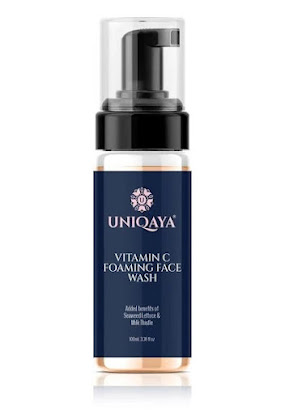Niacinamide Sunscreen With SPF 60 PA++++

Using sunscreen with niacinamide can also help to minimize the appearance of pores by regulating oil production. This can lead to smoother, more refined skin texture over time. Additionally, it’s effective at fading dark spots and hyperpigmentation, giving your skin a more even tone. Another bonus? Niacinamide is suitable for all skin types and plays well with other skincare ingredients, making it easy to incorporate into your routine. In short, niacinamide is a multitasking ingredient that offers a range of benefits for your skin. Whether you’re dealing with dryness, acne, or uneven skin tone, niacinamide can help you achieve a healthier, more radiant complexion.


